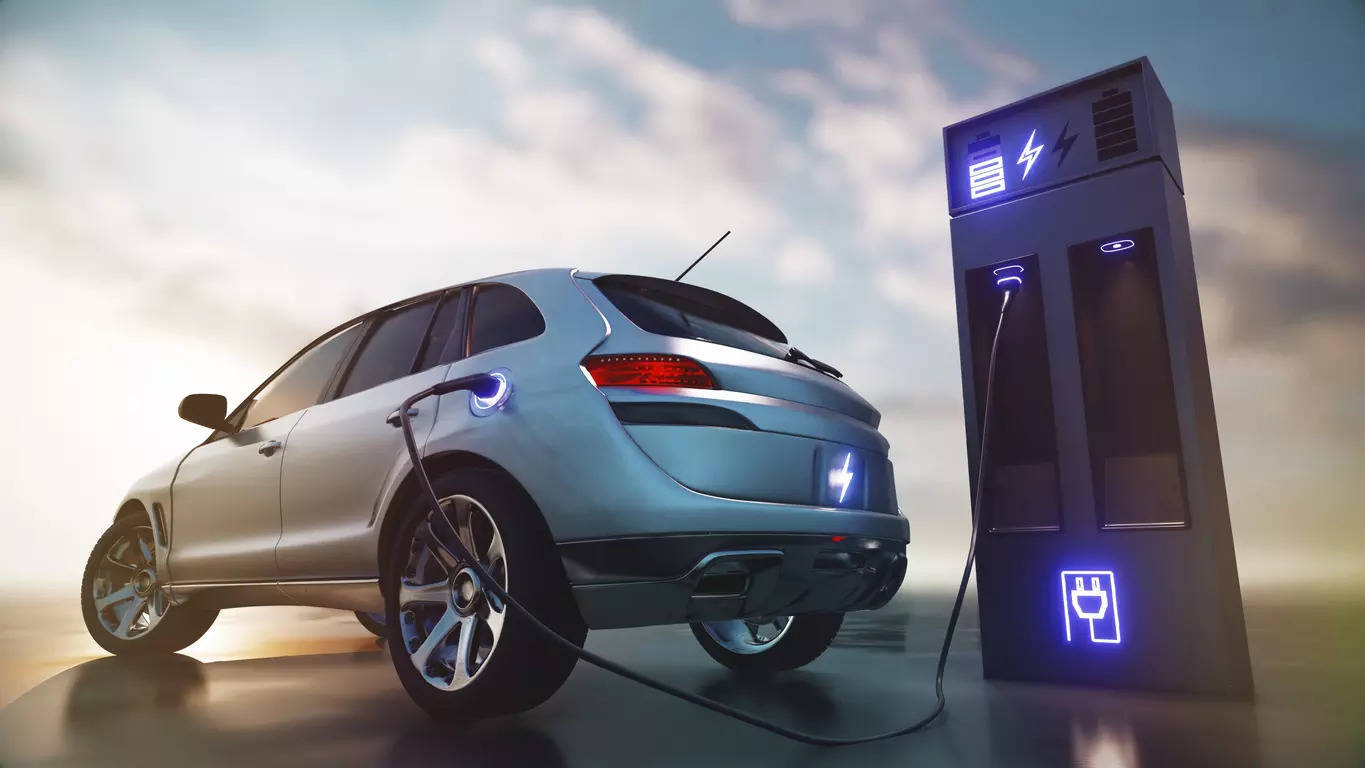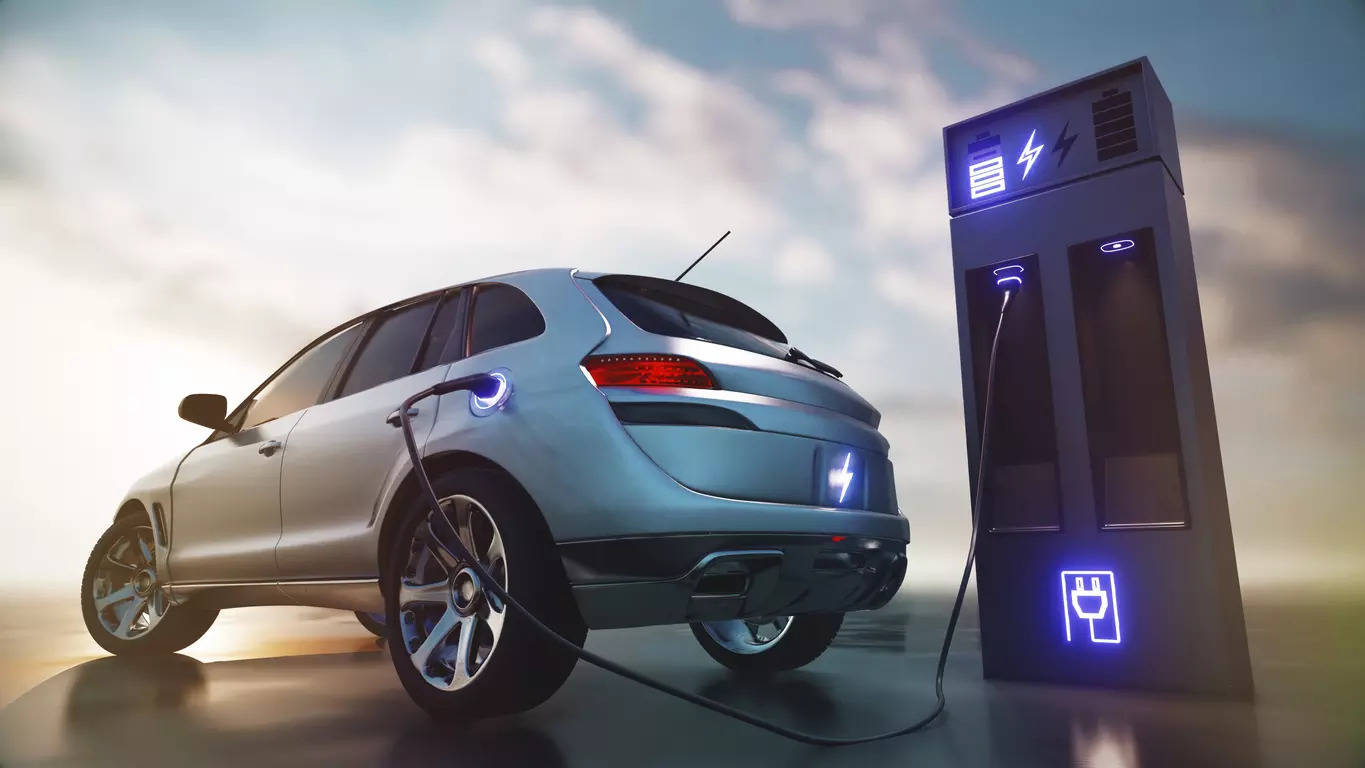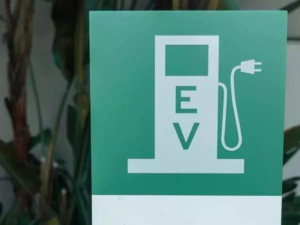
New Delhi: India’s electric passenger vehicle market, after the recent policy announcement, is abuzz with. Expectations about global giant Tesla’s imminent entry and the consequent market share battles among the incumbents and the newbies over the next few years. The new e-Vehicle policy allows imports of cars of a certain value at 15% import duty, which is a substantial reduction from the current levies, with riders. It fulfils much of what Tesla has been lobbying the Indian government for. And ever since the policy was announced, there has been speculation about its impact on homegrown electric vehicle makers, led by Tata Motors, Maruti Suzuki and Mahindra & Mahindra, among others.Now, projections by GlobalData, a leading global data analytics firm, show that Maruti and Tata will together corner 55% share of the battery electric vehicle (BEV) market in 2025. And continue to account for more than half the market in 2035.
Maruti Suzuki is expected to launch its first BEV in 2024-25 and has already said that the share of battery electric vehicles in its portfolio will reach 60% by 2030. And Tata Motors remains the market leader With Punch, Tigor, Tiago and Nexon lineup. GlobalData projections peg Maruti’s market share of battery PVs at 11% and Tata Motors’ at 44% in 2025. So, in other words, the two homegrown OEMs will account for at least every second battery PV sold in the domestic market next year.
Where does this leave the new entrants VinFast, possibly Tesla and others, in the market share pecking order over the years? Will these and other global brands be able to shake the domestic OEMs’ grip?
“The Indian government’s just announced EV Policy is a well-balanced approach. It will allow global OEMs to test their BEVs in the market in a very limited manner through CBU imports in the short-term, but the new EV Policy also forces them to commit investments in local manufacturing and components sourcing thereafter, thereby promoting the “Make In India” initiative. We do not think the new EV Policy will have a big impact on local players in the short-term,” Ammar Master, Director (South Asia), Automotive for GlobalData, said.
Master echoed the sentiments of other experts, who have also hailed the policy as well balanced and ruled out any impact on homegrown OEMs in the short run.
Hemal Thakkar, Senior Practice Leader and Director at Crisil, had pointed out earlier that the new policy will lead to a spur in investments for the auto component industry. “And the government has ensured that it will be limiting imports of electric four wheelers to 8000 units per annum, which would not lead a significant dent on the domestic industry. In fact, this will also provide the customers a choice to look at various models at attractive price points beyond the ones present in India currently”.
Tesla has, as yet, not reacted to the new policy. And VinFast India CEO Pham Sanh Chau said, “We have a long term growth commitment in India. We have pledged an expenditure of $500 million, which includes electric vehicle manufacturing facility in Tamil Nadu. This forward looking policy helps us introduce a wide variety of smart, green, premium quality SUVs at all inclusive prices, along with outstanding aftersales policies”.
Premium shakeup
But the story has a small twist when one considers the premium battery passenger vehicle space. Master of GlobalData said,“Tata Motors, Mahindra and Maruti Suzuki are all aiming to not only offer mass-market BEVs but also move up the value chain to provide more premium BEVs in the future. Hence, they are likely to face some competition over the medium- and long-term, after the OEMs that begin BEV CBU imports establish local assembly operations after three years.”
Analysts at brokerage Emkay echoed GlobalData, saying sales of some luxury EVs from German OEMs could be impacted by the new policy. “There could be some risk to a few of the upcoming models of M&M and Tata Motors at the upper end of the SUV market. It could also potentially impact sales of luxury vehicles (German brands) with increased entry of mid-to-premium EVs at competitive pricing.”
Tata, Maruti pow wow
GlobalData projections show that among the top five BEV OEMs (Maruti, Tata, Mahindra, Hyundai and Kia), Tata Motors’ share of the market will shrink year on year as Maruti’s expands. So in 2025, as per the analytics firm’s projections, Maruti will account for at least on in 10 BEVs whereas Tata will account for more than 4 in 10. But by 2030, Maruti will account for one in five while Tata will account for 28% of the market. By 2035, Tata’s share of the BEV market will narrow down to one in five vehicles whereas Maruti will account for every third BEV sold. In all these years, Mahindra will remain within the 10-12% range, Hyundai will gyrate between 10-13% and Kia in the 5-8% market share band.
Kwan Wongwetsawat, Senior Analyst – Asia-Pacific Powertrain, Automotive, GlobalData, pointed out that Maruti’s parent, the Suzuki Group announced its 2030 strategic plan last year. “This includes the launch of six BEV models by the end of the decade. It has been noted that Suzuki will initially collaborate with Toyota to introduce its BEV in India. However, it is our belief that Suzuki is simultaneously developing in-house technology. We anticipate that the compact SUV, comparable to the Ignis, as well as models designed for taxi fleets, such as Dzire, will be integral to the BEV lineup. Additionally, the midsize SUV BEVs are expected to play a role by the start of the next decade.”
Queries sent to Tata Motors on market share projections remained unanswered.
Policy
The EV policy allows import of cars with CIF value of USD 35000, which attract 70% duty currently (100% is for cars over USD 40,00) at 15% duty as long as they set up a manufacturing facility in India within three years. Another stipulation is that such companies should achieve a localisation level of 50% by the fifth year. The annual imports of e-vehicles under this policy have been capped at 8000 units.
An official statement said that such a policy will “provide Indian consumers access to the latest technology, boost the Make-in-India initiative, strengthen the EV ecosystem by promoting healthy competition among EV players leading to a high volume of production, economies of scale, lower cost of production, reduce imports of crude oil and lowe trade deficit”.
Under the new policy, any foreign EV maker should commit an investment of USD 500 million (INR 4150 crore), show localisation level of 25% within three years and 50% within five years. This will entitle the company to import e-vehicles of CIF value USD 35,000 (about INR 29 lakh) and above at a concessional customs duty rate of 15% for five years.
Also, the total number of EVs which can be imported under the new policy would be determined by “the total duty foregone or investment made, whichever is lower, subject to a maximum of Rs 6484 crore”. And lastly, the investment commitment made by each player who agrees to set up a manufacturing facility would have to be backed by a bank guarantee, in lieu of the customs duty foregone.






